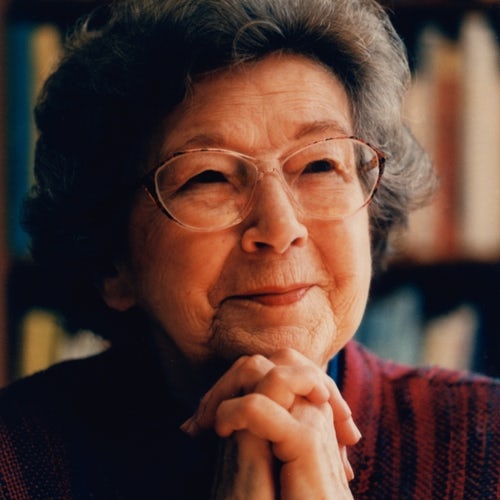Beverly Cleary died at the remarkable age of 104 this past Thursday. Cleary leaves behind some of the most well-known and beloved works of children’s literature such as the Ramona Quimby series and the Newbery Medal-winning Dear Mr. Henshaw. Cleary grew up in the Grant Park neighborhood of Portland, Oregon and used it for the setting of many of her books. Her stories about Ramona, her sister Beezus and their neighbor Henry Huggins were modest tales of parents losing jobs and being annoyed by little sisters that seem very ordinary indeed against a current ecosystem of children’s and young adult books stuffed full of chosen ones, exclusive boarding schools, and cosmic battles between good and evil. Her books taught children to see the worlds they grew up in as universes unto themselves. That adventure could be found in exploring the woods behind your house or in writing letters to someone you’d never met. That you don’t need to have the fate of the galaxy on your shoulders to be important and have a story worth telling; it’s enough to move with your single parent to a new town and try to fit into a new school. And yet even when you feel alone you are part of a community that looks after each other the best they can. Cleary’s books have no superhero who swoops in to save the day and no one discovers they have magic powers. But Cleary’s neighborhoods and lonely apartment buildings, with fast food fried chicken as a special treat or filled with the agony of getting a terrible haircut before an important event, are stories that have endured for decades.
It was work that reflected the larger culture in film and television. For every clean scrubbed sitcom like “The Brady Bunch” there was one like “All in the Family” or “Good Times” where if the characters got something brand name at the grocery store it’s because they clipped a coupon for it. Movies like “The Sugarland Express” and “Sounder” focused on families concerned with how to keep food on the table, not fighting dynastic power struggles. And even when “Sugarland Express’” director Steven Spielberg ventured into sci-fi with “Close Encounters of the Third Kind,” the film was grounded in the rhythms of an Indiana working-class family’s life. It was a tradition that stretched into the ‘80s and ‘90s with children’s books like Lensey Namioka’s Yang the Youngest and His Terrible Ear and Mary Hoffman’s Amazing Grace. Hit shows in those decades included “Roseanne” and “Family Matters.”
The evidence of that loss of faith in ordinary lives, especially in children’s entertainment, is in every new Netflix show based on a young adult series called something like “The Special Maginarium School for Merewolf Princelings.” Or that pre-pandemic entries in the Marvel Cinematic Universe were the guaranteed biggest hits at the box office. Families struggling to make a life with living and children passing into maturity by recognizing themselves part of a larger pattern are no longer considered interesting enough on their own. Cleary wrote the kind of stories that teach children to endure. That taught them that one day they were going to grow up and so to be careful of what kind of person they’d be. And the most popular entertainment currently are stories that promise that adolescence never has to end. That if anyone tells you no, well they’re just jealous of how special you are.
I don’t want to create a false binary between realistic and genre stories with only the former capable of being about everyday people and their struggles. The science fiction of Kim Stanley Robinson is a case study of the epic feel that ordinary people struggling to build communities on alien worlds and deal with a post climate change Earth can have. But by and large our pop culture is defined by a longing to escape. Game shows promise instant wealth, our streaming series and movies show us over and over that everything ultimately comes down to being born to the right person. Protagonists who find out they’re heir to a secret network of power. Characters who don’t help out another person because it’s the right thing to do. They do so because they’re looking for redemption, need to complete a quest, or recognize another chosen one who needs to be protected at all costs.
In the way of pop culture, it bleeds out to how people behave in the real world. There are sour conservatives who pause their vigorous flag waving to become ardent British monarchists because apparently the only thing better than an old unjust system of power is an even older unjust system with no mechanism for the people to redress it. There’s the bizarre spectacle of people on social media being unpaid publicists for deep pocketed entities like Amazon, Disney, and Elon Musk. The last is especially curious because so many of Musk’s most ardent defenders don’t seem to believe they might be the next Elon Musk or even become as wealthy as he is. Rather it’s like watching jockeying to become the most favored of Musk’s servants, in the hope he might let them stowaway in the baggage compartment on one of his escape rockets to Mars. The idea that our lives are worth defending, our material conditions worth improving are increasingly alien to the cultural conversation.
It’s why the loss of authors like Cleary feel so heavy. Hers is also a body of work that feels like it belongs to a 20th century slipping further and further away. And so it can’t help but feel like Cleary’s passing is an even more acute loss, symbolic of the faith our culture has lost in ordinary lives. If there is hope it is in how much her books were loved and hopefully will continue to be. If only to remind us of what is worth holding onto. And what might do us worlds of good if we remembered their lessons more often.












